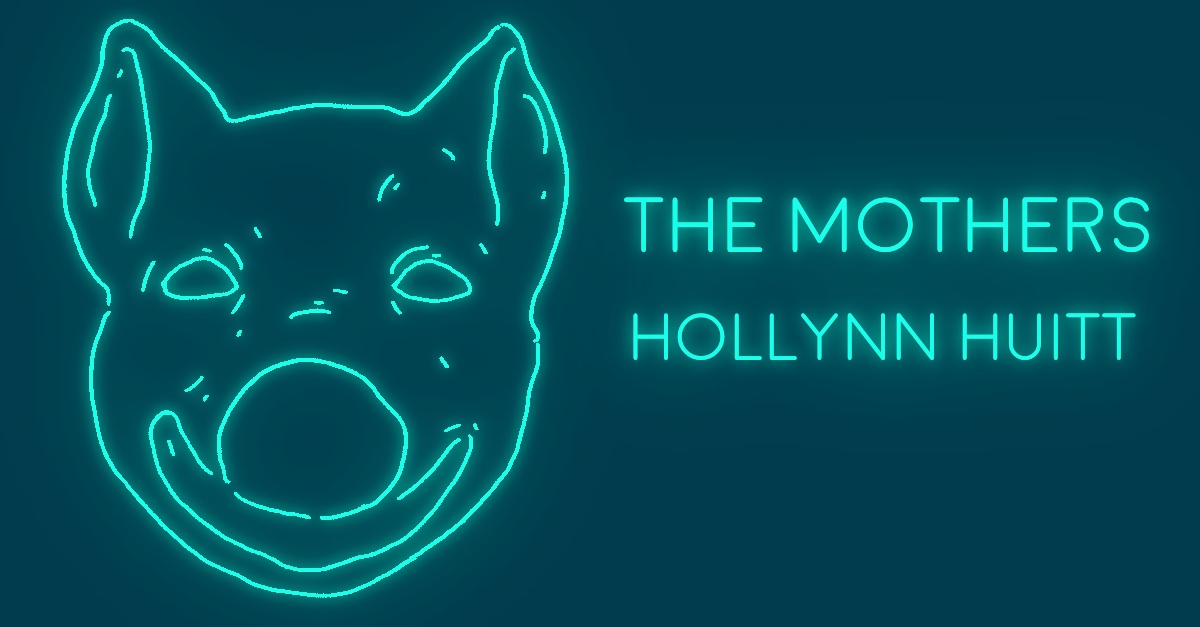Alec was six years old when they got pigs. He was leaning over the fence with his mom, watching them prowl around, backs hunched as they sniff-sniff-sniffed everything.
“You know,” she said without looking at him, “pig mothers sometimes eat their babies.” His spine stiffened and his skin prickled. Just the day before, he’d learned that pigs were the most intelligent of animals. That you could train them as well as dogs, if not better. He was expecting to be friends with these pigs. She turned to him, face contorted, hands raised to mimic sharp, cloven hooves.
“Maybe someday I’ll do the same to you.” Alec gasped and took one step backwards. She laughed, but it only made it worse, this layering of the mother he knew on top of the nightmare of a mother who ate her children. He was not the sort of child to take a joke.
From then on, his mother regularly brought up the subject without speaking. She’d raise her hands and twist her face and Alec would be reminded that at any minute she could end him. He would freeze, she would laugh, and then she’d go back to being her loving and patient self. She was the kind of mother who bought him value-packs of markers and stacks of thick white paper, who started each morning by making him a colorful and precisely arranged breakfast. She seemed to know the cannibalistic mother pig act terrified him, but it didn’t stop.
Alec asked his father about it. “It’s called savaging,” his father told him, staring into space as he accessed the hidden, encyclopedic layers of his memory. “They’re not precisely sure why it happens, but it has something to do with the shock of motherhood.” Never mind that Alec was only six–his father wouldn’t dilute anything for him. “Or perhaps because the mothers are stressed–by their caretakers, or by their environment.” He lost interest in Alec’s question and returned to the fine-print book he was reading.
Just before dinner, he found his mother seated in a corner of sunlight by the barn, her eyes closed.
“How did it feel–” he lost his nerve.
He tried again: “How did it feel, to become a mother?”
“It was a shock.”
In spring, they got goats.
“You know, some nannies abandon their babies,” Alec’s mother said while they scratched the pregnant does’ heads through a wooden fence. His fingers stilled on the coarse hair of a nanny goat’s face. She gently nudged his hand to resume.
“Why?” he whispered.
“Don’t know. Lots of reasons.” His mom made a quiet bleating sound under her breath. Fear bolted through him, but now he was seven and so he stood his ground.
“And then what happens?”
“Well, you hope to find the kids before they die.”
She dusted off her hands and looked at him, her face as serious as he’d ever seen. Whatever she saw on his face made her laugh.
“Baaa,” she said, walking away.
Alec walked down to his uncle’s house that afternoon.
“Uncle,” he said. “Why do nanny goats abandon their kids?”
“Well,” said his uncle, who had been studying all of the parts of his lawnmower, spread out on the lawn. “Could be the living conditions I suppose. You know, animals are real sensitive to smell. So maybe if the kid smelled strange the nanny wouldn’t want it.”
At home, Alec drew himself a bath and scrubbed. He gingerly lay back though he hated the rivulets that went down his face afterwards, straight for his eyes. He bathed twice a day all that week. He overheard his mom tell his dad that she was worried about him. “He’s developing some obsessive behaviors,” she said, but she didn’t sound worried, just amused. He liked to amuse her, and so he kept on bathing.
At the end of summer they walked through a hay field where the fescue was as tall as Alec’s shoulders and as high as his mother’s hips. In a depression in the grass, they found a fawn curled up in a perfect oval, breathing in double time. No adult deer in sight.
“They left her,” he said.
His mom patted his back.
“Just for a little while. The mother left the fawn here on purpose because it’s too young to run fast. She’ll come back, when it is safe.”
The next morning, Alec sat at the top of the stairs, afraid to descend. When he finally summoned the courage, he didn’t see his mom, but he found his breakfast, on the table, the apples sliced thin and fanned, the toast cut into crustless triangles. He wandered around. There was the book they were reading together, and the boots they had worn on their hike yesterday. He called for her.
“She’s gone,” his father said from his chair by the window, a book in his hands.
“She’ll be back.”

